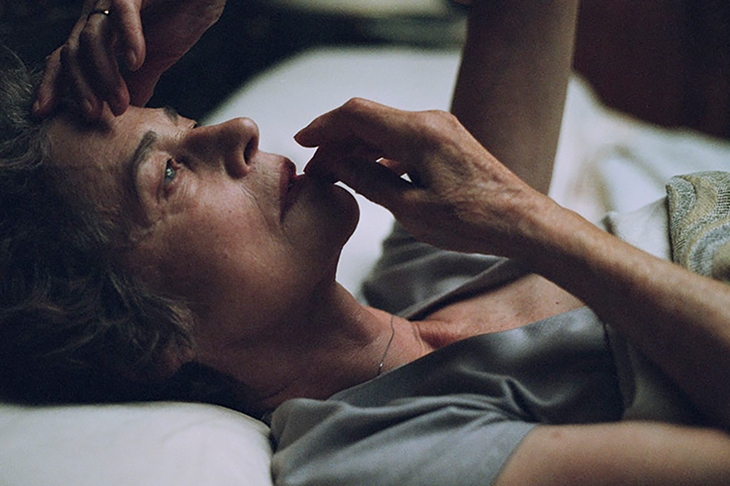Hannah stars Charlotte Rampling in a film where not much happens and not much happens and not much happens and then, finally, not much happens. One scene, for instance, involves changing a light bulb and that’s it, and as close to an action stunt as we ever get. (Unless you count doing laundry.) But. But. It is also peculiarly mesmerising, showcases an extraordinary performance, and cumulatively builds into a powerful exploration of pain, loneliness and invisibility. So not much happens and not much happens and not much happens — but a great deal is said.
Directed and co-written by Andrea Pallaoro, and set in an unspecified Belgian town, the film opens with a close-up of Rampling’s Hannah, but then most of the film is a close-up of Rampling’s Hannah, understandably. Rampling has been an electrifying screen presence since she was 19 years old and nothing has changed. Tired of Rampling, tired of life, in my opinion. Anyway, Hannah is making a terrible noise, a kind of ululating, like an animal in pain, which is what she is, even if we then discover it’s just her amateur theatre group warming up for rehearsals.
She returns home to the apartment she shares with her husband who, excitingly, changes a light bulb when it blows. A couple of scenes later, the pair travel into town where she leaves him at some kind of institution. Information is offered only sparsely, but there are enough clues to work out eventually that he’s been sent to prison in disgrace, and enough clues to work out what his crime might be. Some critics have said this isn’t so, but they weren’t paying attention, or are thick, or both. I found it horribly clear.
Her life then collapses in on itself as she pays for her husband’s crimes. Her leisure-centre membership is revoked. The dog misses its master and won’t eat. She isn’t allowed to see her son or grandson. She’s also at that age where her own identity is being erased. A couple shout over her on the Métro as if she doesn’t exist. At the swimming-pool, kids dive-bomb in her path, also as if she doesn’t exist. There is a nude scene, as clocked, I noted, by the Daily Star — ‘72-year-old bares all!’ — but it is newsworthy, given that older women’s bodies are almost never seen on screen, and given that older women’s bodies are treated as something we should put away, like our very selves. (Cheers for that, society. Thanks a lot.)
I’ve made it sound rather action-packed, but it doesn’t seem so, because it unfolds so slowly, to the extent that it ever unfolds. This can be frustrating. Hannah works as a housekeeper for a rich family — a job where invisibility is also key — and that family’s son seems kind of odd, but we never know the how or the why. Its metaphors can be heavy-handed too. Did we really, for example, have to see a beached whale to understand that Hannah has run aground too?
The script is minimal. It probably covers only a few pages. But the power is in Rampling’s superb performance. Hannah is cold and distant on the surface, but Rampling captures her deep-down anguish, pain and shame. Not much happens, but as a portrait of a woman who can’t go on but does, and will, it says all it has to say most magnificently.






Comments